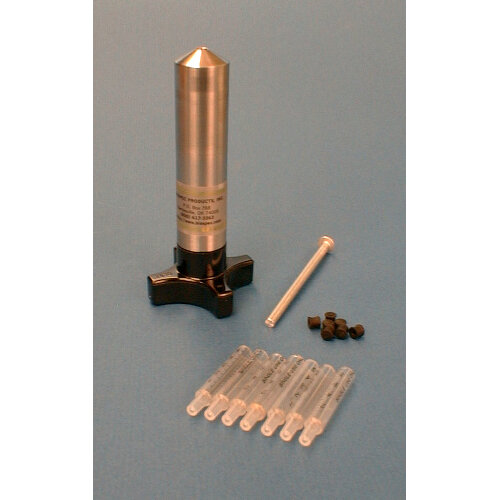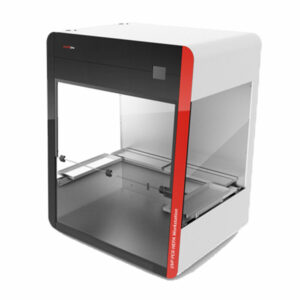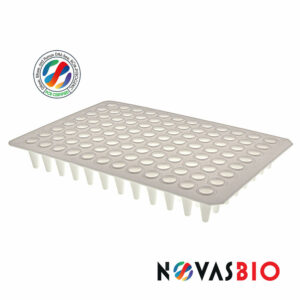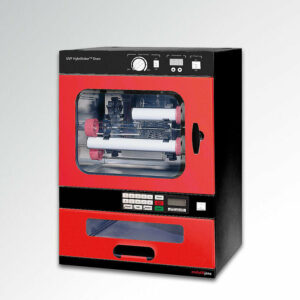The MicroMincer is a compact, hand-operated screw press which macerates 0.3 grams or less of soft** fresh plant or animal tissue (e.g. muscle, liver, brain, epicotyl and pulpy leaf tissue) without sample loss, heat generation, foaming or aerosol problems. Much of the sample, without added buffer, is pushed through a 250 micron stainless-steel sieve under thousands of pounds force. In the case of plant tissues, fibrous, cellulosic pulp is left behind while cell juice and intracellular products are extruded. The resultant extract can be deposited directly in microtubes.
The stainless steel MicroMincer utilizes disposable polypropylene liners. Thus, multiple samples can be quickly processed without a need to clean or risk of contamination between samples.
APPLICATIONS
- Microanalysis of cellular constituents.
- Eliminates re-concentration of sample extract.
- Direct sample extraction for PAGE and agar gel analysis.
- Preparation of viable single-cell suspensions from tissue***
** Highly fibrous animal tissue containing collegen (e.g., skin, some tumors, cartilage) cannot pass through the screen. Likewise, highly fibrous plant tissue generally can't be processed.
*** DNA Double-strand Breaks in Mouse Kidney Cells with Age, Narendra P Singh et. al., Biogerontology 2, 261-270 (2001)
Re. Production of Viable Cells by Enzymatic Disaggregation of Tissue: Maceration of tissue samples with a MicroMincer reduces fresh tissue to much smallers pieces. This greatly decreases the time for enzymatic tissue disaggregation and maximizes the yield of viable cells. As an added benefit, the MicroMincer-reduced tissue is so small that diffusion of nutrients and gases into the tissue during incubation with the digestive enzymes are not limited . (See an excellent review of Enzymatic Tissue Disaggregation at http://www.worthington-biochem.com/tissuedissociation/basic.html)
HOW IT WORKS
- Put 100 to 500 mg of tissue into the barrel of the disposable liner. It is usually not necessary to pre-chop soft tissue.
- Partially insert the piston/screw into the barrel of the liner and slide the assembly into the press cylinder.
- Screw down the press. Extract exits from the pointed end of the liner. Continue screwing down the press until all of the sample has been extracted. More pressure beyond this point will shear the plastic tip and force it out of the press cylinder. However, because the liner is a disposable item no harm is done. With very small samples, some of the extract may remain in the liner tip but can be removed with a micropipette or small spatula.
- Unscrew the press and remove the used liner and the used piston seal.




